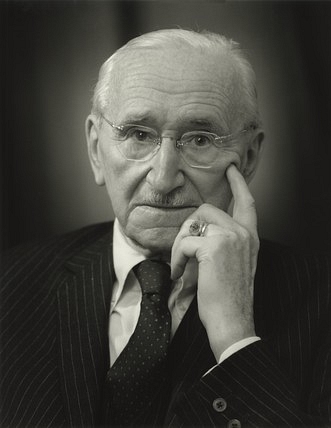Blogs
Hayek, Humility, And Economics
- 8 May was the birth anniversary of Nobel-winning economist, F.A Hayek. A tribute to that champion of freedom:

FA Hayek : Picture from Acton.org
There is something remarkable about Hayek, a quality in his writings that I haven’t quite encountered in other writers and libertarian philosophers. There is a certain quality of care in his work. Each idea is carefully fleshed out, and every reservation a reader might have is is duly anticipated and tackled. There is no pretence of certainty, which is to be expected from a man whose worldview hinged on being wary of certainty and the pretence of knowledge.
The fact that man knows very little, and is capable of knowing little has profound implications for a variety of our pursuits. Every law, every institution and every pursuit in the political and social sphere has to be cognizant of man’s limited capacity to know. This was Hayek’s great insight.
Consider economics. The same theme of humility forms the core of Hayek’s economic worldview. The fundamental concern in economics, according to Hayek,is not scarcity, as we’re taught in Economics 101. It is, more fundamentally and more precisely—the use of knowledge that is widely dispersed among millions of individuals. Each individual knows little, but is in possession of relevant knowledge—“the knowledge of the particular circumstances of time and place.” And this scattered knowledge cannot be deposited with a single centralised authority. Our institutions and laws, then, need to be fashioned in a manner that best allows for the utilisation of this decentralised knowledge.
If the central problem of economics was merely, or exclusively, the problem of scarcity then the solution to this fundamental question could be conceived in technical terms. And were the solution of this problem merely a technical matter, the economic affairs of all of society could be subject to the ‘perfect’ plans of a central authority or a dictator. What plagued the economic orthodoxy of his time, and arguably plagues the economic orthodoxy of today, was the belief that we could study society as we studied physical matter—as if society (and its most fundamental constituent, the individual) were inert matter that would willingly bend to an authority’s plan without protest. This quote by Hayek illustrates this point—
Societies, according to Hayek, were not to be studied as we studied physical matter or phenomenon, but that did not mean that we could not know or investigate anything at all about social matters. We had to create suitable tools and methods for the social sciences, and it is here where Hayek made significant contributions, along with other economists and philosophers in the Austrian tradition.
It was the same theme of humility that echoed in Hayek’s speech when he won the noble prize in 1974. He concluded the speech with this note of caution—
We can thus create only the environment that can allow people to prosper, but we cannot dictate or chart the course of prosperity itself.
If there is one thing that plagues the social sciences today—it is the lack of humility. It would be good for the social sciences, and for each of us personally as individuals, to adopt the quality of humility that was so central to Hayek and his work. That would be a fitting tribute to the man on his birthday.
Here are the links to some of the essays that illustrate Hayek’s basic philosophy–
This piece was first published here.
Support Swarajya's 50 Ground Reports Project & Sponsor A Story
Every general election Swarajya does a 50 ground reports project.
Aimed only at serious readers and those who appreciate the nuances of political undercurrents, the project provides a sense of India's electoral landscape. As you know, these reports are produced after considerable investment of travel, time and effort on the ground.
This time too we've kicked off the project in style and have covered over 30 constituencies already. If you're someone who appreciates such work and have enjoyed our coverage please consider sponsoring a ground report for just Rs 2999 to Rs 19,999 - it goes a long way in helping us produce more quality reportage.
You can also back this project by becoming a subscriber for as little as Rs 999 - so do click on this links and choose a plan that suits you and back us.
Click below to contribute.
Latest